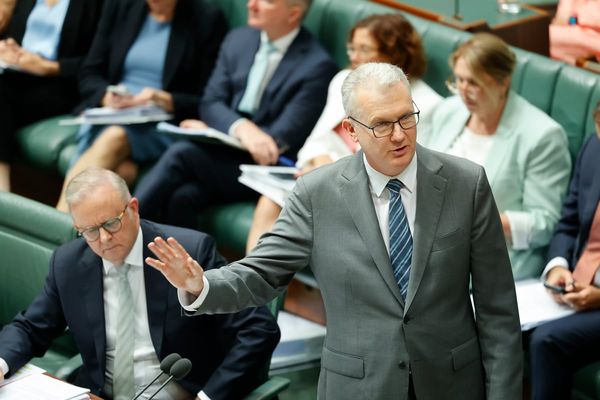
The Pentagon has launched a review of the Aukus defence pact to make sure it is aligned with Trump’s “America first” agenda, throwing the $240bn agreement with Britain and Australia into doubt.
The review may trigger more allied anxiety over the future of the trilateral alliance designed to counter China’s military rise. Australia in particular is relying on Aukus to renew its entire submarine fleet.
“The department is reviewing Aukus as part of ensuring that this initiative of the previous administration is aligned with the president’s ‘America first’ agenda,” a Pentagon official said. “This means ensuring the highest readiness of our service members, that allies step up fully to do their part for collective defense and that the defense industrial base is meeting our needs.”
The 2021 Biden-era agreement would see Australia acquire nuclear-powered attack submarines, with the US promising to sell up to five Virginia-class vessels from 2032. A new joint submarine class would follow in the early 2040s.
But now, the Aukus-skeptic US undersecretary of defense, Elbridge Colby, is reportedly charged with undertaking that effort, a number of anonymous sources told FT. Colby posted on X last year that it “would be crazy” for the US to have fewer nuclear submarines if conflict erupted over Taiwan.
The British government responded cautiously to news of the US review, saying: “Aukus is a landmark security and defence partnership with two of our closest allies. It is one of the most strategically important partnerships in decades, supporting peace and security in the Indo-Pacific and Euro-Atlantic, while also delivering jobs and economic growth in communities across all three nations.
“It is understandable that a new administration would want to review its approach to such a major partnership, just as the UK did last year. The UK will continue to work closely with the US and Australia at all levels to maximise the benefits and opportunities which Aukus presents for our three nations.”
Nuclear submarine powers are members of an exclusive club – only six countries currently operate them: the US, the UK, Russia, China, France and India. Aukus would make Australia the seventh.
And while generally favored by US lawmakers focused on national security – and as Australia tries to step up its security spending in line with Trump’s wishes – the deal’s survival now appears to be in the balance.
The US president himself does not seem to have made a priority of the pact. Asked about Aukus during Keir Starmer’s visit in February, Trump appeared unfamiliar with the acronym, responding: “What does that mean?”
The review follows defense secretary Pete Hegseth’s demand last week that Australia increase military spending from 2% to 3.5% of GDP. The country’s prime minister, Anthony Albanese, has pledged only 2.4%, insisting Australia will set its own defense priorities.
Australia has already paid the US almost A$800m (US$520m) this year to boost American submarine production, with a further A$2bn ($1.3bn) due by the end of the year. The country committed to spending A$368bn ($239bn) over three decades on the program.
Hours before the news broke, the UK government announced a $7.69bn investment to its nuclear submarine industrial base.
Aukus represents the most substantial military cooperation between the three nations in generations, extending beyond submarines to include hypersonic missiles and advanced weapons technology.







